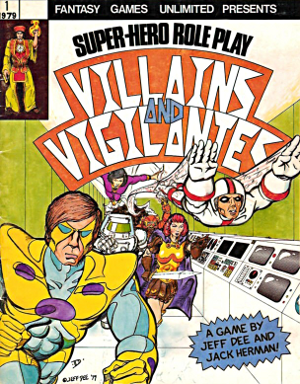Dumb Reasons to Form Your Political Beliefs
A reader to National Review Online says that he became a conservative because of how his fellow college students at Kent State University responded to President Reagan's shooting:
I came back to my dorm to see the TV lounges filled with students fervently wishing for the president not to survive the surgery. The worst of will was being expressed toward "Ronnie Ray-gun," to use just one of the epithets.
Right then, I knew that, whatever side I belonged on, it wasn't the one where people were wishing for the death of the democratically elected president. For the first time, I started to pay real attention to American politics, and to investigate what American conservatism really was.
I don't comment often on right-wing sites, but I made an exception here because conversion stories like this one always seem a bit ridiculous to me. I was 13 when Reagan was shot in March 1981 and vividly recall following the news at my grandmother's house after Frank Reynolds of ABC broke in with a bulletin during One Life to Live [1]. I deplore the sentiments of people who wanted the president to die.
But as I asked on NRO, does the reader not recognize the same irrational hatred directed at President Obama today on the right that was directed at Reagan back then on the left?
The nine responses I've received answer my question. None of them thinks Obama is hated today the way Reagan was hated back then. As one person stated, "Death wishes for political opponents is something that's almost entirely confined to the left."
I'm a save-the-abortion-rights-of-gay-whales liberal, but I would never make a statement as blinkered as that against conservatives. One of the most foolish things in politics is the belief that your side is reasonable and fair while the other side engages in all of the bad acts. There are numerous examples of Obama hatred today as rabid as the Reagan haters in college who converted the reader to conservatism. There will be plenty of jerks who wish death on the next elected president, too. These folks are easier to find today than in 1981 -- just read any newspaper's poorly policed comment section or the feedback on rabid political blogs.
Left vs. right isn't the only meaningful divide in our politics. There's also ragemonkeys vs. everybody else. If the formative moment in the establishment of your ideological beliefs is the time you heard repugnant things said about the current president, you're just as likely to have become a liberal as a conservative. It just depends on when you heard them.
1: If anyone knows what Brad Vernon told his sister Samantha about Asa Buchanan's late wife Olympia, let me know.
Highway Deaths Amuse Justin Timberlake
The San Francisco Chronicle is running a story on a terrible highway accident in Indiana that killed seven people in a minivan Thursday night. A tractor trailer slammed into the van, possibly after it hit a deer and slowed down or stopped, and only three of the 10 passengers in the van survived the crash.
The story is illustrated by a photo of Justin Timberlake and host Matt Lauer laughing it up on the Today Show:
As you might expect, commenters aren't happy that Timberlake and Lauer find the crash funny.
New York Post Smears Occupy Wall Street Mom

The New York Post is running a story today about Stacy Hessler, a 38-year-old Florida mom who's gone from her family while she takes part in the Occupy Wall Street protests at Zucotti Park. Hessler is raising four children at home with her husband in DeLand, Fl., but she came to New York City to join the protests on Oct. 9 and has no plans to leave:
I have no idea what the future holds, but I'm here indefinitely. Forever. ... Military people leave their families all the time, so why should I feel bad? I'm fighting for a better world.
The story makes it sound like she's just ditching her family, especially the nudge-nudge part about "keeping herself warm at night" in a tent with a male protester. The right winger Jonah Goldberg calls her mom of the year on National Review Online. When I read the Post story this morning, I used snap judgment skills honed in a decade of blogging to conclude that momma's getting her freak flag on.
But her Facebook wall tells a different story. She's extremely involved in her childrens' schools and sports and has posted hundreds of photos of the kids engaged in family outings. Hessler made this post when she decided to turn her week-long stay into something longer:
I have a plea for my friends. I need your help and support. I want to stay occupying wall st. I feel my presence is very important in the support of non-violent communication and sanitation(keeping the park clean) I am willing to work tirelessly on these efforts. I need help with getting my kids to activities and stepping up with the things I help lead, such as one small village, jr roller derby, bee-attitudes, 4H, for his glory co-op. Please respond if you are willing to help my kids so I can stay here and help this movement. I have a train ticket for tomorrow that I want to change but I need to know I have support from my community back home for my family in order to change the ticket.
No less than 12 of her friends are offering to help out. Sound like a bad mom to you? As Hessler's story is fed into the media sausage mill, I hope some reporters do a much better job telling it than Kevin Fasick and Bob Fredericks in the Post.
Full Disclosure: TechCrunch is Screwed

"We have a traditional understanding of journalism with the exception of TechCrunch." -- AOL chief executive officer Tim Armstrong
Around five years ago, Microsoft fueled a controversy by giving $4,000 Acer Ferrari 1000 laptop computers running Windows Vista Ultimate to some popular tech bloggers. A lot of bloggers -- particularly those who did not receive incredibly overpriced luxury branded laptops -- raised such a ruckus that Microsoft eventually asked for them back. Bloggers who wouldn't give them up were encouraged to hold a contest giveaway.
I was reminded of this controversy when I read TechCrunch writer M.G. Siegler's post this morning about how the news site's impartiality would not be affected by TechCrunch founder Mike Arrington actively investing in companies they report on:
The notion that Mike, or anyone else, investing in a company would dictate some sort of giant conflicted agenda is laughable. Literally. If Mike tried to get me to write some unreasonable post about a company he had invested in, I would laugh at him. But he would never do that. Ask Loic Le Meur. Ask Kevin Rose. Ask Shervin Pishevar. Ask Airbnb. Ask countless others. He didn't get to where he is by being an idiot. ...
The magic at TechCrunch happens because the writers have very little oversight. Instead, the emphasis is placed on hiring the right writers in the first place and putting them through a trial-by-fire to see who emerges. Those that have, my peers, are the best at what they do.
Siegler's defense is exactly the same as those Ferrari bloggers. Every journalist knows she is personally capable of rising above conflicts of interest to report without fear or favor. Getting to do it on a $4,000 laptop tricked out like a midlife crisis sports car is all the sweeter.
But let's say Arrington's new investment fund bankrolls Heello, the Twitter clone that 300,000 people were fascinated by for exactly 12 minutes last month.
Let's say Siegler thinks Heello belongs in the TechCrunch deadpool.
Will he report that story with the same enthusiasm he would give another startup that isn't fattened by Arrington's filthy lucre? There are far more lousy startups out there than Siegler has time to cover. It would be easy to make Heello a story he didn't quite get around to writing. The way a story gets reported isn't the only place journalistic bias rears its head. There's also the decision about whether to cover something at all.
Even if those fire-tested TechCrunch writers give impartial coverage to Arrington's ventures and all of their direct competitors, there's another way his investments bite them in the ass.
People will be too cynical to believe in that impartiality.
If you accepted that laptop from Microsoft in 2006, for the rest of time you face a choice every time you write about the company: You can disclose that gift again or risk having a snarky bastard in the comments make it sound like you intentionally covered it up.
Siegler now faces the same disclosure issue over and over again, and he didn't even get a laptop.
Villains & Vigilantes Creators Sue Game's Publisher
An epic battle is underway over one of the oldest super-hero roleplaying games, but sadly it won't be settled by muscle-bound men in tights. The creators of the game Villains & Vigilantes, Jeff Dee and Jack Herman, have filed a copyright infringement lawsuit against Scott Bizar, the longtime publisher of the game. The suit, filed July 27 in the U.S. District Court for the Middle District of Florida, claims that Bizar has no right to publish the game or any related products and illegally profits from their sale.
 Villains & Vigilantes was created by Dee and Herman and first published in 1979 by Fantasy Games Unlimited, Inc., a corporation founded by Bizar. The game, one of the first to extend Dungeons & Dragons-style play into the super-hero genre, was popular in the early '80s and spawned a comic book series and other spin-off products. But by 1987, Fantasy Games Unlimited had run into financial difficulties with distributors and its business activity slowed to a crawl.
Villains & Vigilantes was created by Dee and Herman and first published in 1979 by Fantasy Games Unlimited, Inc., a corporation founded by Bizar. The game, one of the first to extend Dungeons & Dragons-style play into the super-hero genre, was popular in the early '80s and spawned a comic book series and other spin-off products. But by 1987, Fantasy Games Unlimited had run into financial difficulties with distributors and its business activity slowed to a crawl.
In June 2010, Dee and Herman started Monkey House Games, LLC and announced they would be publishing a new version of the game, which has been copyrighted in their names since its first edition. Dee told Ain't It Cool News that they had never been informed by Bizar that Fantasy Games Unlimited, Inc., ceased to exist in 1991, which he said caused the publishing rights to revert to them:
We started to become unhappy in the late 1980s when FGU stopped advertising V&V, taking it to conventions, or even soliciting distributors. When it became clear that this situation wasn't going to change, we started looking for ways to get our game back. But for years, it looked hopeless. The contract seemed to give Scott Bizar enough loopholes so that he could keep it in force perpetually with little effort, and attempts to purchase the publishing rights from him were met by outrageously high price tags.
Our contract was with Fantasy Games Unlimited, Inc. -- which, we recently discovered, was "dissolved by proclamation" by the state of NY in 1991 ... It no longer exists. And the contract clearly stated that if FGU, Inc., ever ceased to exist, then the publication rights reverted back to us.
Bizar's a high school teacher in Arizona who kept his old games in print and ran a game store in Gilbert, Ariz., that closed in 2007. He told an interviewer in 2000, "My principal trade is now teaching not publishing. When you're over 50 and married with a child you cannot allow yourself the same delirious adventures as when you're 20 or 30. ... I no longer promise to fight as hard as I did in 1987, when the distributors refused to sell FGU products because they were not presented in boxes like TSR products."
Dee's a game developer whose credits include the TWERPS and Quicksilver roleplaying games, the Warchest board game, and the computer game The Sims: Castaway Stories. In 2005, he released Living Legends, a super-hero game intended to be a sequel to Villains & Vigilantes. Herman's a writer published in comics such as Elementals, Robotech and Just Imagine and the computer games Ultima VI and Wing Commander II.
For the past 12 months, both Monkey House and Bizar have been actively publishing and marketing Villains & Vigilantes and related products. Bizar's sole proprietorship, also called Fantasy Games Unlimited, has brought on new game developers. After Monkey House attempted to register a Villains & Vigilantes trademark on June 16, 2010, Bizar did the same a month later, leading to a case before the U.S. Trademark Trial and Appeal Board that began in March. The filing of this suit will likely cause that case to be suspended pending the result of litigation.
Brent Rose, the Tampa attorney representing Dee and Herman, told me in email that the suit was filed after other means of resolving the dispute were attempted. "There were cease and desist letters issued by both sides," he said. "We requested arbitration or mediation or even just a teleconference to just try and work things out before filing our federal lawsuit, but our written requests were either ignored or refused."
Matt Haughey on Running a 'Lifestyle Business'
There's a great interview in Willamette Week about my friend Matt Haughey, who has turned MetaFilter into a successful small business that employs around 3-5 people and gets 25 million hits a month.Haughey, who was one of the founders of Blogger, left Silicon Valley for McMinnville, Ore., several years ago. The interviewer does a nice job of picking up on the phrase "lifestyle business," which is used in the dot-com world to insult startups that make a sustainable amount of money for their staff but don't get deeply into debt trying to become the next Facebook. To those who believe he should've made MetaFilter into something huge, he says:
I'm OK with this lifestyle business. It's a put-down for a lot of people, especially in Silicon Valley. I think it's the best thing in the world. You don't have to kill yourself. I've been at startups where we worked 16 hours a day and didn't get anything out of it. It's stupid. Geeks who know how to program and make things should be able to make a small thing that runs forever and make $100,000 a year and live off that. I mean, what is wrong with that? It's an awesome goal.
I never got that message anywhere in the tech community. Like, what is wrong with making a decent living in doing something you love forever? And then people put that down as a "lifestyle business." Or ask, "How are you going to change the world or make the next Facebook?"
It's like nobody sings unless they want to be Britney Spears. That's stupid -- we should all sing in bars three nights a week if we like it and get paid as professional musicians.
I gravitate towards lifestyle businesses as well, despite well-intentioned friends and relatives who believe I really should be a dot-com billionaire by now. I recently spoke by phone to someone who was meeting prospective investors for a "$20 million idea" instead of continuing a dot-com business that made yearly profits in the mid six figures.
All I could think about during the call was how sweet it would be to run that existing business.
The Good, Bad and Ugly of Joe McGinniss
I've had a mixed history with author Joe McGinniss. His true-crime book Cruel Doubt was a laughably bad attempt to blame Dungeons & Dragons for a 1988 murder. His soccer book The Miracle of Castel di Sangro may be the best sports book I've ever read.
McGinniss has a biography of Sarah Palin coming out in the fall. I was looking forward to it, since his move-next-door stunt reminds me of funny things he did in Castel di Sangro. But I'm looking forward to it less after reading this paragraph from his Palin book, which he shared on his blog:
Sarah Palin practices politics as lap dance, and we're the suckers who pay the price. Members of our jaded national press corps eagerly stuff hundred dollar bills into her g-string, even as they wink at one another to show that they don't take her seriously.
That's a lot of sexist awfulness packed into 45 words.



